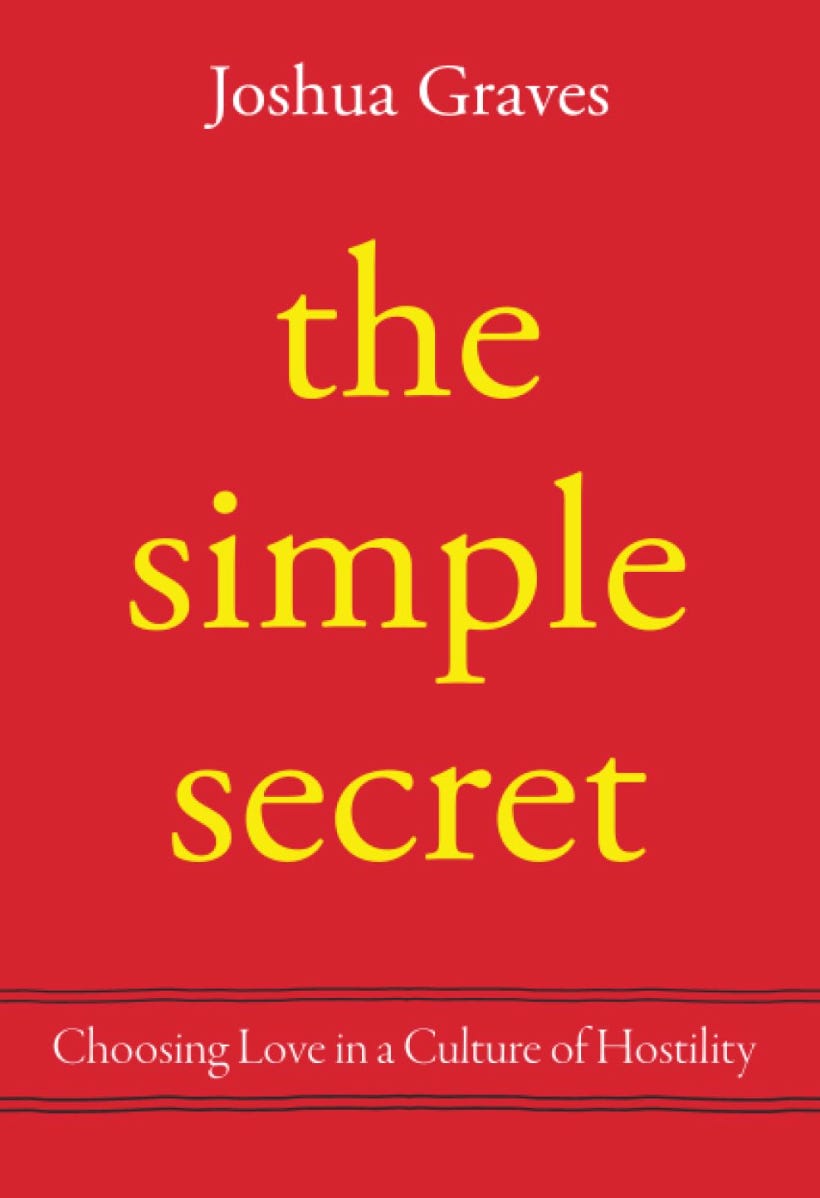Jesus famously told his disciples “I give to you a new order, that you love one another period just as I loved you so also you love one another. In this all will know that you are my apprentices: if you have love among one another” (John 13:34-35; Second Testament). Famously, for sure. But not as effectively as we all might like the words to have been.
On another occasion, Jesus was pressed into his theory of the core ideas of the Torah. Jesus answered the scribe’s question with this: “You will love the Lord, your God, in your whole heart and in your whole self and in your whole intelligence.” He quoted Deuteronomy 6 with that. He interpreted it like this: “this is the great and the first order. The second is comparable: You will love your neighbor as yourself.” The most potent words now follow: “the whole Code and the prophets hang on these two orders” (Matthew 22:37-40; Second Testament).
It’s all so simple. Until you try. And what’s even more simple is pointing out the lack of love in others when, if you face the one in the mirror, the pointing reverses itself.
The apostle Paul turned these words into bold font in 1 Corinthians 13 as well as in Romans – a time when Paul was learning all over again the power of love. In Romans 13, Paul wrote, “Owe nothing to no one except to love one another. For the one loving the other has filled out the Covenant Code. For the [code] – you will not be adulterous, you will not murder, you will not thieve, you will not desire, and if there is another order – comes to a head in this one: You will love your neighbor as yourself. The love doesn't work bad to the neighbor. Therefore, the love is the fullness of the Code” (13:8-10).
Mind you, this began with a response to paying taxes and Paul made a shift to a fresh angle on the same. It's all about the Bible being based on enslaved secretaries.
Joshua Graves, a friend and a pastor (ahem, preacher) in Music City, has a new book out called The Simple Secret: Choosing Love in a Culture of Hostility. His view of love is not wishy washy stuff, not “let’s all be nice now and get along,” and neither does he sweep boundary marking under the rug – he knows boundaries need to be respected and at times established. But his book is about love, about love as “the daily decision to be tenaciously aware and attentive of the needs of others around you.” I have to admit that Josh is a friend, and we love baseball. And I so appreciate that he piped in my definition of love in his first chapter. He once heard me say this: “love is a rugged commitment to be with someone, to be for someone, unto Christlikeness, for as long as it takes.” I’ve added after “rugged” the word “affective” since then, but I wish I remembered to say more often what he heard me say, “as long as it takes.”
I quote Josh.
“There's only one thing that can transform the current chaos.
There's only one thing in life that truly counts. And it seems to be a secret eluding most of us. Some of us get it late. Rarely do we comprehend the secret early. The simple secret is this: love is the only legacy that matters. If I have any power or influence in my life, it is simply the ability to love people obviously each day of my life.” Good words.
“Here's what Jesus is still teaching me. The only thing that matters is the way in which I choose to love and be loved. The only things that matter are my relationships and the quality of love therein.”
“In the pages that follow, I'm trying to convince you of one thing and one thing only: loving others and allowing yourself to be loved are the only things that matter in this eighty-trips-around-the-sun adventure we call life.”
Because he's a preacher, he includes lots of stories. He discusses Loving God, our friends and neighbors, ourselves, spouses or significant others, families and children, friends, strangers, annoying people, rivals and enemies, the poor and vulnerable, creation, our cities, and the world as it is.”
He believes in “love with teeth.”






Jesus only asks us to do the impossible, to do what only He can do through us if we let Him, huh?
Our neighbor is in the hospital with some ailment that all of his drinking has caused him, a sweet man who speaks mostly Spanish but understands a little bit of English. He asked me if I drink, which he knows that I do because he's seen me drink a beer or two at his backyard barbeques. I said that I drink but don't get drunk, and he nodded his head because he knows too that he's never seen me drunk. For that matter, I'd never seen my neighbor drunk, but the enormous heap of aluminum Bud Light cans in his back yard that would collect there periodically until he'd periodically haul them off testified to our neighbor's taste for alcohol. I actually lied when I said what I said about drinking but not getting drunk because on occasion I have let my so-called "social drinking" reach the point of me being buzzed, and my conscience had been bothering me about this. Maybe this was why last night in my visit with our heavily drinking neighbor in the hospital who'd been told by his doctor that he must immediately give up drinking, I said to him, "If you have to give up drinking, so will I," and the look of hope and thankfulness that lit up his face made me feel more alive than I've felt in a long time. And as I clasped hands with our neighbor and new-found "non-drinking buddy," I felt God's Pleasure as I prayed, "OK, Jesus, please do this through me." And I know that Jesus will do it too. Real "Cheers!"
Oh, that we Christians really, really knew this deep down, in ways that change us for the rest of our lives. Our only legacy is love. May it be so (for me).